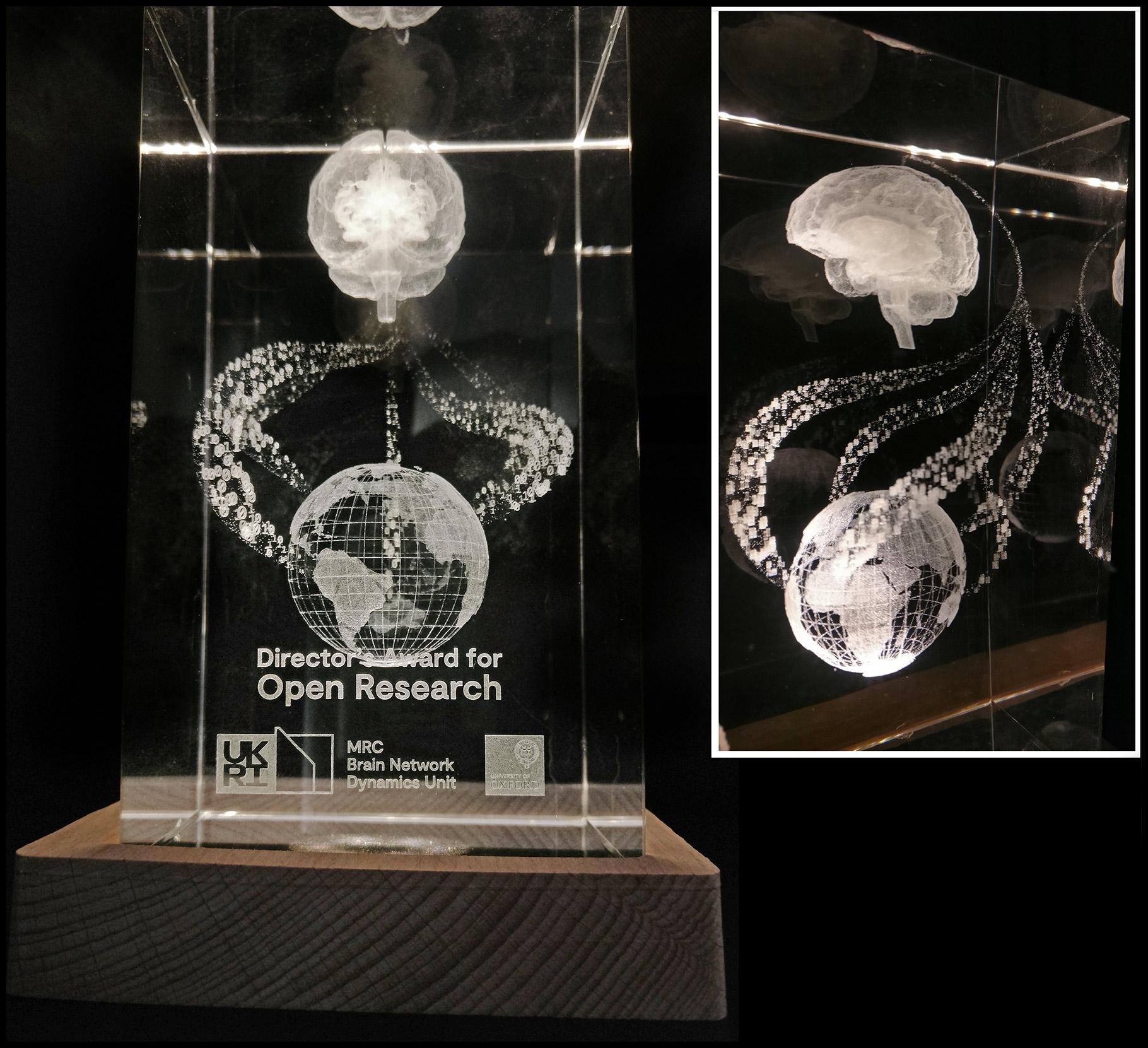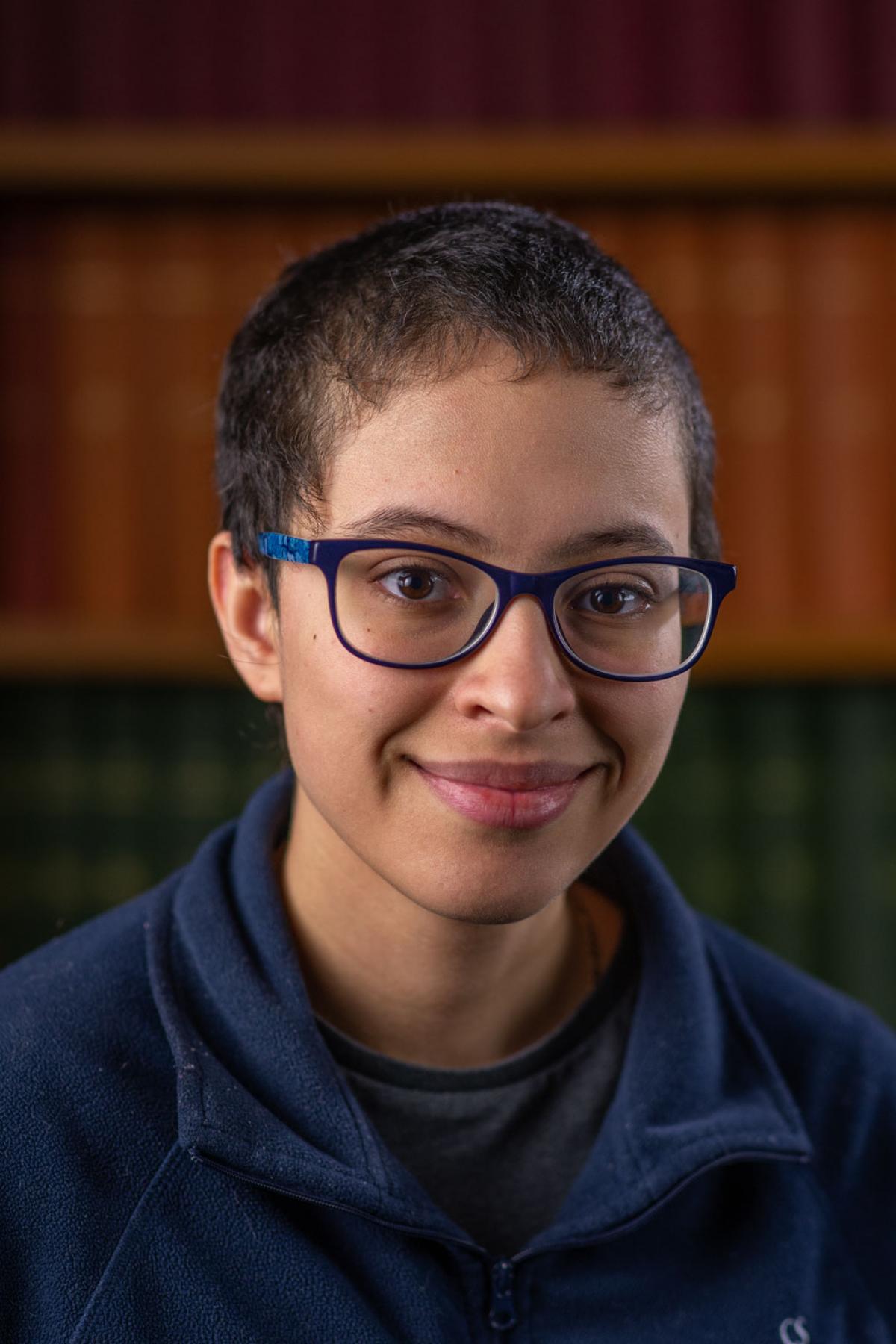
Many congratulations to Unit D.Phil. student Cal Shearer on being selected to join the British Neuroscience Association (BNA) Scholars Programme.
The BNA Scholars Programme was launched in 2021 with a view to improving equality, diversity and inclusion in neuroscience. The programme supports students from currently under-represented ethnic groups in neuroscience, offering them a mentoring scheme, networking opportunities, and membership to both the BNA and Federation of European Neuroscience Societies, as well as funding towards attendance at conferences. Students are accepted on to the Scholars Programme following an annual open competition.
Cal's D.Phil. research is currently focused on using a range of techniques in both humans and mice to study hippocampal-neocortical interactions during inferential decision making. Cal is co-supervised by Dr Helen Barron and Professor David Dupret in the Unit, and by Professor Jill O'Reilly in Oxford’s Department of Experimental Psychology.
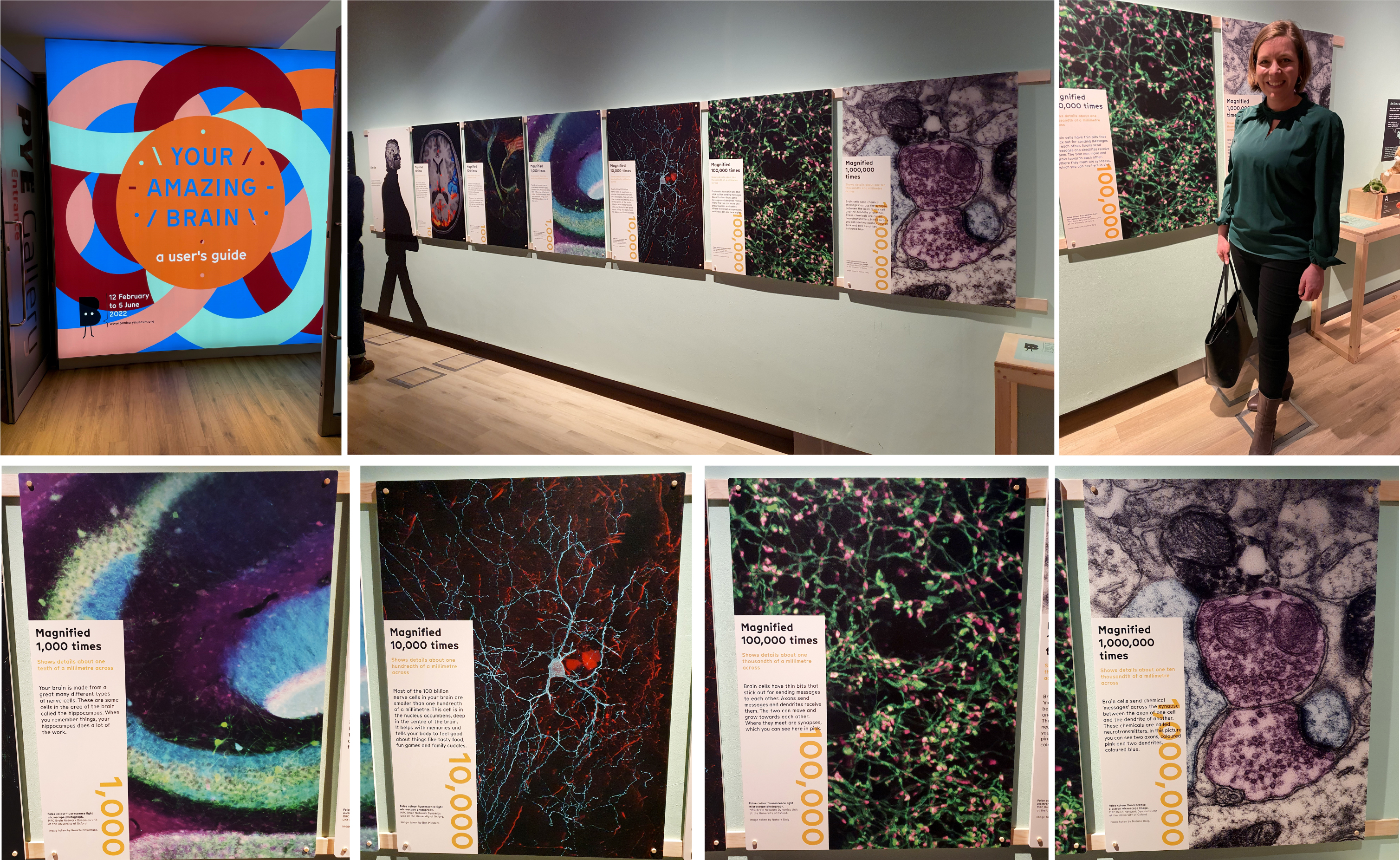
We are proud to announce that some of the Unit’s microscopic images, illuminating in beautiful detail the circuits and cells of the mammalian brain, are on public display as part of a new exhibition being held at the Banbury Museum & Gallery.
The exhibition, entitled “Your Amazing Brain: A User’s Guide”, runs from 12th February to 5th June 2022 and is an interactive, family-friendly experience offering the public an opportunity to journey inside the brain and discover more about what makes the brain so special.
The Unit’s images form the core of a gallery piece “Zoom into your brain” that showcases, at increasing magnification, the organisation of the brain into regions, different types of neurons, and specialised structures such as axons, dendrites, and synaptic connections. Unit researchers Natalie Doig, Kouichi Nakamura and Ben Micklem each provided spectacular shots taken with our microscopes.
Dr Natalie Doig, who led on the curation of the Unit’s images for the exhibition, commented “We are delighted to showcase the Unit’s work and play our part in helping immerse and inspire others in the wonders of the brain. It was a pleasure to team up with departmental colleagues at the Wellcome Centre for Integrative Neuroscience and contribute to the exhibition.”
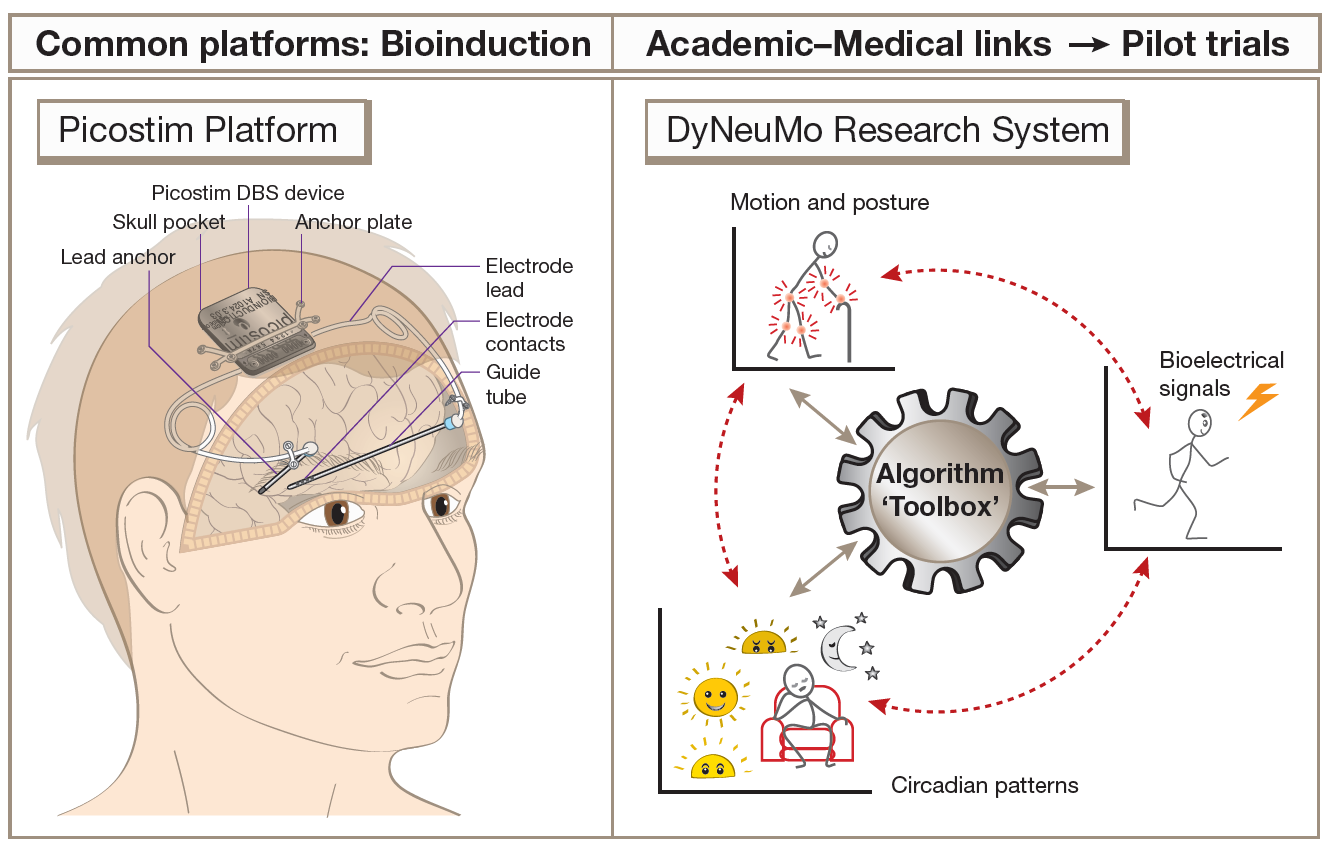
We are excited to announce that Unit researchers have made pivotal contributions to a first-in-human implant of a bioelectronic research system designed to advance the development of new and improved treatments for brain disorders.
Working with collaborators at the University of Oxford’s Nuffield Department of Surgical Sciences and Department of Engineering Science, and in partnership with industry, Unit researchers will help deliver the MINDS feasibility study, an innovative clinical trial of a novel brain pacemaker for stimulation of deep brain structures in patients with Multiple Systems Atrophy.
The pacemaker device is part of an investigational research platform, the ‘PicostimTM-DyNeuMo,’ which was developed as part of a strategic collaboration between Unit Group Leader Professor Tim Denison and the UK-based bioelectronics technology company Bioinduction Ltd.. Going forward, the research team aim to identify electrophysiological brain signals that can be used as biomarkers to indicate pathological states, and investigate how these vary throughout the day/night cycle, with a view to ultimately developing ‘closed-loop’ brain stimulation patterns that optimise symptom management and improve sleep.
Professor Tim Denison, who will lead the Unit’s contribution to the MINDS study, commented “Implantable stimulators provide a unique platform for enabling clinical neuroscience by providing 24/7 access to brain networks. Scientific instrumentation first serves to help understand disease pathology and can then be configured to prototype enhanced therapy options including customization for patient-specific physiology. The creation of fully-implantable clinical research tools required cooperation between academics and industry to ensure the instrumentation meets stringent regulatory standards, and the PicostimTM-DyNeuMo research tool is the result of symbiotic collaboration with Bioinduction leveraging their PicostimTM platform.”
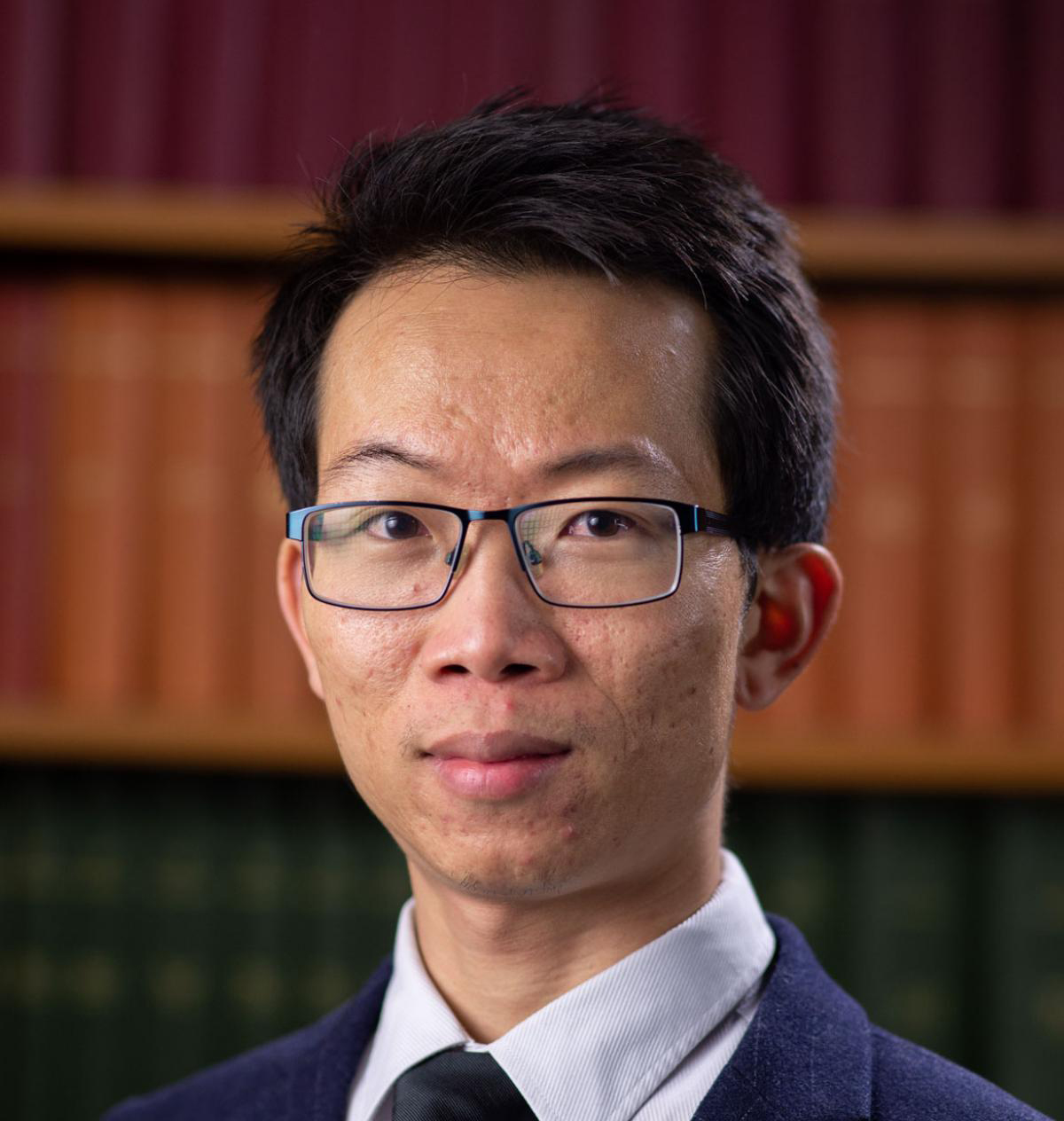
Many congratulations to Unit postdoctoral researcher Dr Shenghong He on being awarded a prestigious Non-Clinical Postdoctoral Fellowship by the Guarantors of Brain.
The Guarantors of Brain is a charity that aims to promote teaching, education and research in neurology and related clinical-academic disciplines. The Non-Clinical Postdoctoral Fellowships support talented researchers who are not clinically qualified but who are nevertheless working in a clinical neuroscience setting and have clear goals for clinical translation.
Shenghong will start his Fellowship in February, working under the mentorship of Associate Professor Alex Green (Nuffield Departments of Clinical Neurosciences and Surgical Sciences, University of Oxford) and Unit Group Leader Associate Professor Huiling Tan. Shenghong’s Fellowship research will be focused on investigating the utility of gait-phase-dependent adaptive Deep Brain Stimulation and neurofeedback training for people with gait disturbances.
Shenghong commented: “I am delighted to be awarded this fellowship. I look forward to continuing to work closely with Alex, Huiling and their teams to better understand the pathological mechanisms and symptoms of different brain diseases, and to advance my research on brain-machine interfaces for improved treatments.”
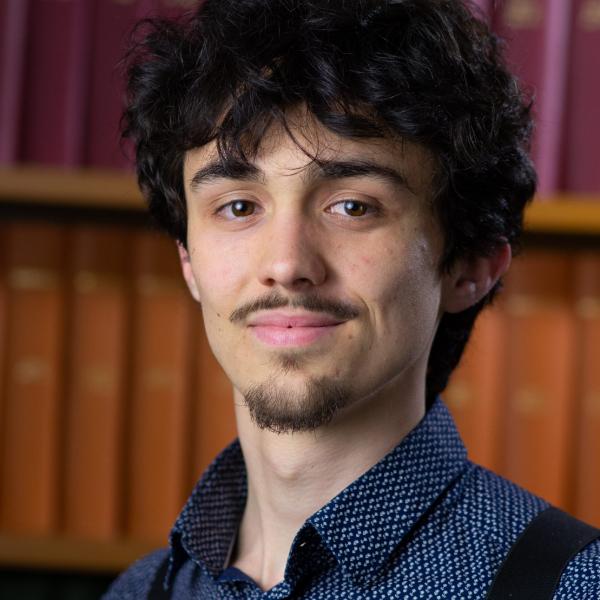
We are pleased to welcome Adrien Causse to the Unit as a visiting student.
Adrien originally studied Medicine at the University of Montpellier-Nîmes, France, joining the national MD-PhD program with the “Ecole de l’INSERM Liliane Bettencourt” (French National Institute for Medical Research). For his undergraduate research project, Adrien studied the pharmacology of metabotropic receptors by using nanobodies in Jean-Philippe Pin's laboratory (University of Montpellier). Adrien then joined the "Ecole Normale Supérieure" (Lyon, France) to pursue a M.Sc. in Biology. For his first M.Sc. project, Adrien worked on fear memory consolidation under the supervision of Thomas Bienvenu in the laboratory of Cyril Herry (University of Bordeaux). Now, to complete his M.Sc., Adrien is joining the Dupret Group for a 6-month internship to learn data analysis methods to investigate hippocampal oscillatory dynamics.
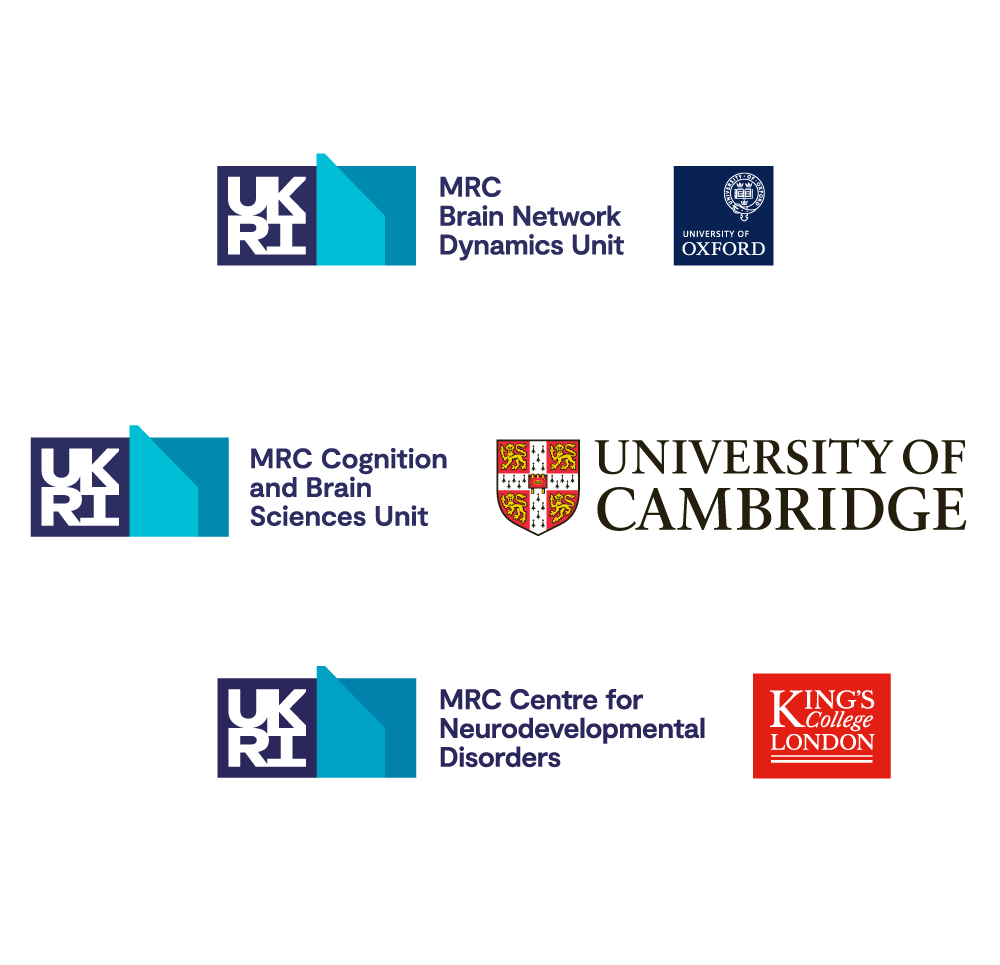
We are delighted to announce that the MRC Brain Network Dynamics Unit has received funding to support a new research collaboration that aims to advance the use of next-generation transcranial magnetic stimulation devices for studies of human brain function in health and disease.
The new collaboration will capitalise on the Unit’s interactions with the MRC Cognition and Brain Sciences Unit (MRC CBU) at the University of Cambridge and the MRC Centre for Neurodevelopmental Disorders (MRC CNDD) at King's College London. As part of this collaboration, the Unit will leverage its bioengineering expertise and industry partnerships to develop devices that allow for unprecedented control over the patterns of magnetic stimuli that can be delivered to the brain.
Unit Interim Director Professor Peter Magill commented “This is a really exciting opportunity for us to team up with world-leading researchers at the MRC CBU and MRC CNDD. By working together, we envisage that rapid and sustainable progress can be made towards delivering devices with the potential to enhance research across the UK and further afield.”
Professor Tim Denison, who will lead the Unit’s contribution to the new research network, commented “We look forward to working with our collaborators as we pursue our shared goal of providing - in an open and transparent manner - the wider research and innovation community with our latest state-of-the-art transcranial magnetic stimulation system for therapy discovery and translational research.”
Dr. Lothar Krinke, CEO Magstim Group Inc., commented “The UK has led the field of transcranial magnetic stimulation technology since the initial invention at Sheffield University. This grant to our academic partners will address important needs for researchers and clinicians in the field of non-invasive brain modulation. We value our partnership with the research network and are collaborating to ensure that new technology will be available to users and customers around the world.”
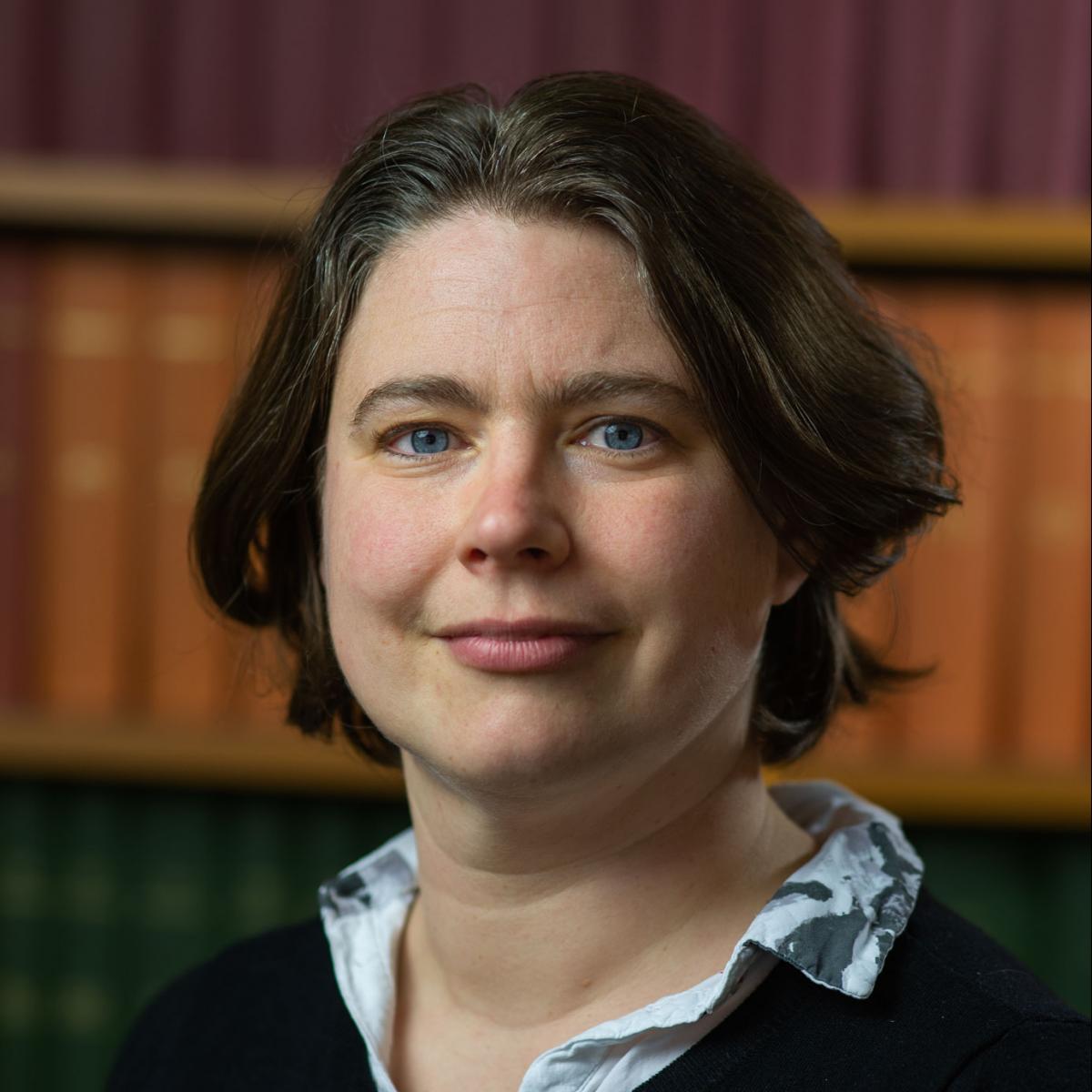
Many congratulations to Unit Group Leader Professor Charlotte Stagg on being awarded a Wellcome Senior Research Fellowship.
Wellcome Senior Research Fellowships support researchers who are emerging as global leaders in their field and who want to tackle the most important questions in science.
Unit Interim Director Professor Peter Magill commented: “We are thrilled for Charlie. Her Fellowship is thoroughly deserved, and is a fitting testament to her outstanding track record and compelling research vision. The Fellowship will help Charlie to continue making critical contributions to the Unit’s pioneering cross-species approach to discovery and translational research.”
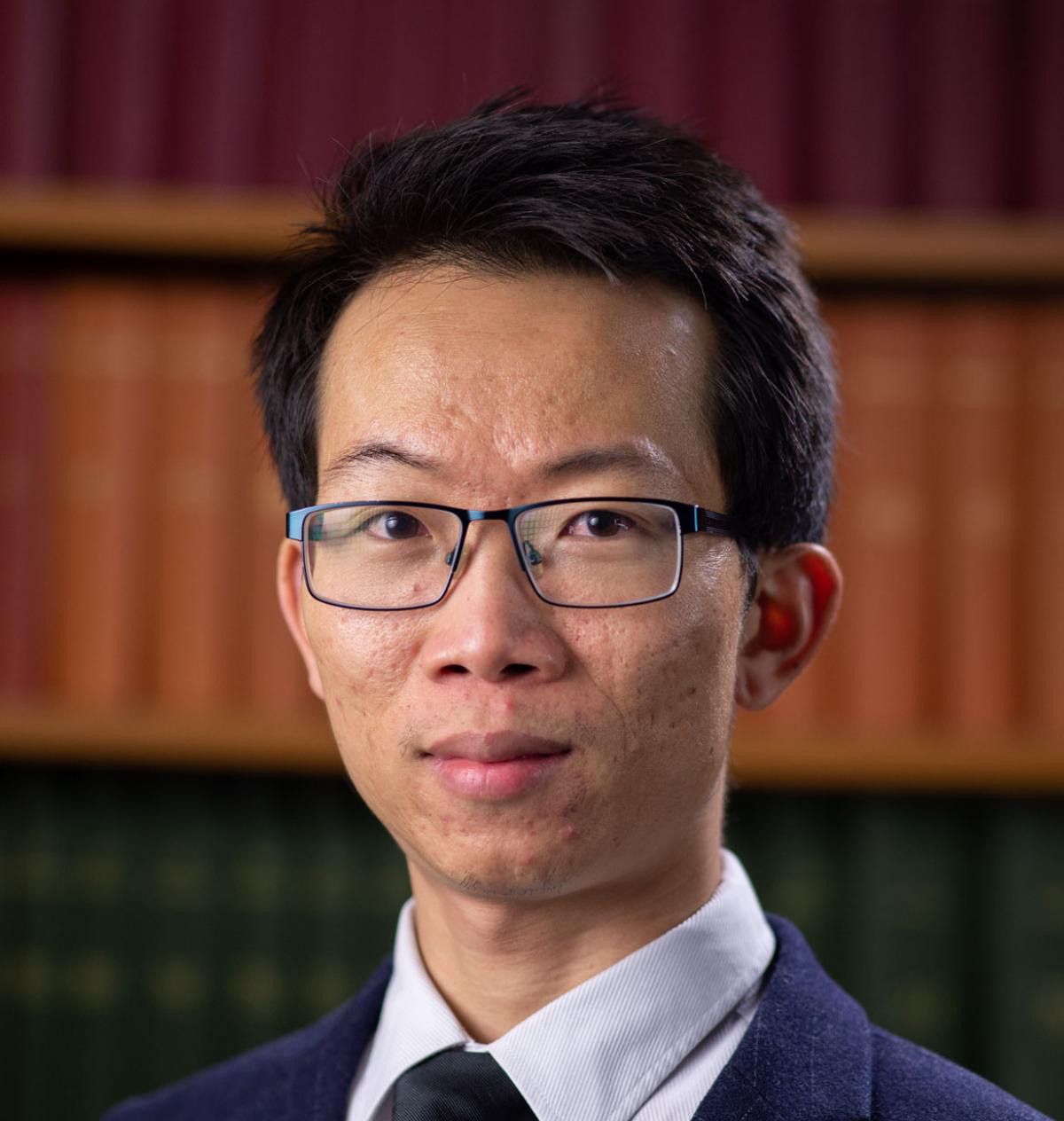
Congratulations to Unit postdoctoral researcher Dr Shenghong He on winning the Director’s Award for Open Research for 2021.
The Award is given annually, on the basis of nominations made by Unit members, to recognise and celebrate the exemplary contributions of an individual or small collective to the Unit’s Open Research activities. The Award also reflects diverse contributions to Open Research, from the sharing of data, code, experimental protocols and materials, to the promotion of best practice and the provision of enabling infrastructure.
Shenghong’s Award was announced by Unit Interim Director Professor Peter Magill at the Unit’s Winter Science Day last week. Professor Magill commented “It is a great pleasure to recognise and reward Shenghong in this way. Shenghong showed great personal initiative in curating and sharing three distinct resources that are related to his recent publications, even though the host journals did not require him to do this. The Committee was particularly impressed by Shenghong’s use of the Unit’s Data Sharing Platform to disseminate complete original datasets with matching code that together allow users to replicate the results/figures documented in his papers. An excellent approach to promoting reuse and reproducibility.”
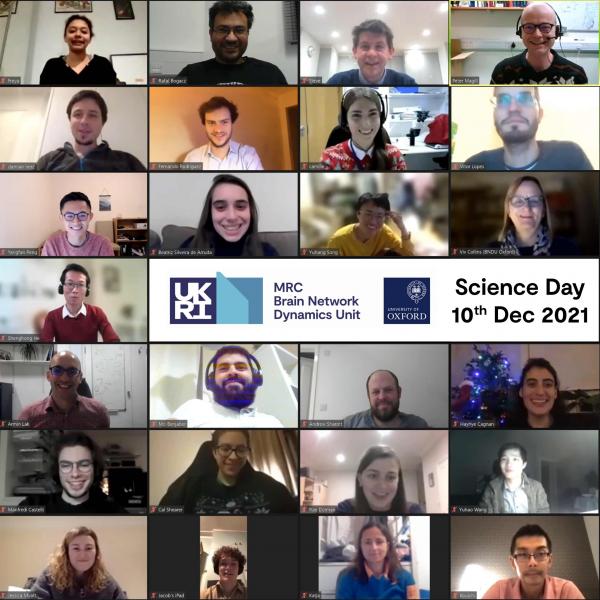
The Unit held its thirteenth Science Day on Friday 10th December 2021. Unpublished work and future research projects were the focus of discussion, and Unit members and visitors enthusiastically took the opportunity to provide the constructive criticism that is vital for nurturing collaborative, multidisciplinary research.
There were 8 short research talks, all of which were given by the Unit’s early-career scientists. Attendees were also treated to two Keynote Lectures: A first by Dr. Leila Reddy of the Centre de Recherche Cerveau et Cognition (CerCo), Toulouse, France, during which she detailed unique research insights into the encoding of sequence learning by human hippocampal neurons; and a second lecture by Dr. Armin Lak of the University of Oxford, in which he gave an engaging account of neuronal circuits important for learning from sensory confidence and reward value.
Unit Interim Director Professor Peter Magill commented: “It was exciting to see how the creative thinking and innovative experiments of the Unit’s students and postdoctoral staff are pushing back the frontiers of discovery and translational research. It was also a distinct pleasure to announce the inaugural winner of the Director’s Award for Open Research. Dr Shenghong He is a most deserving Award winner.”
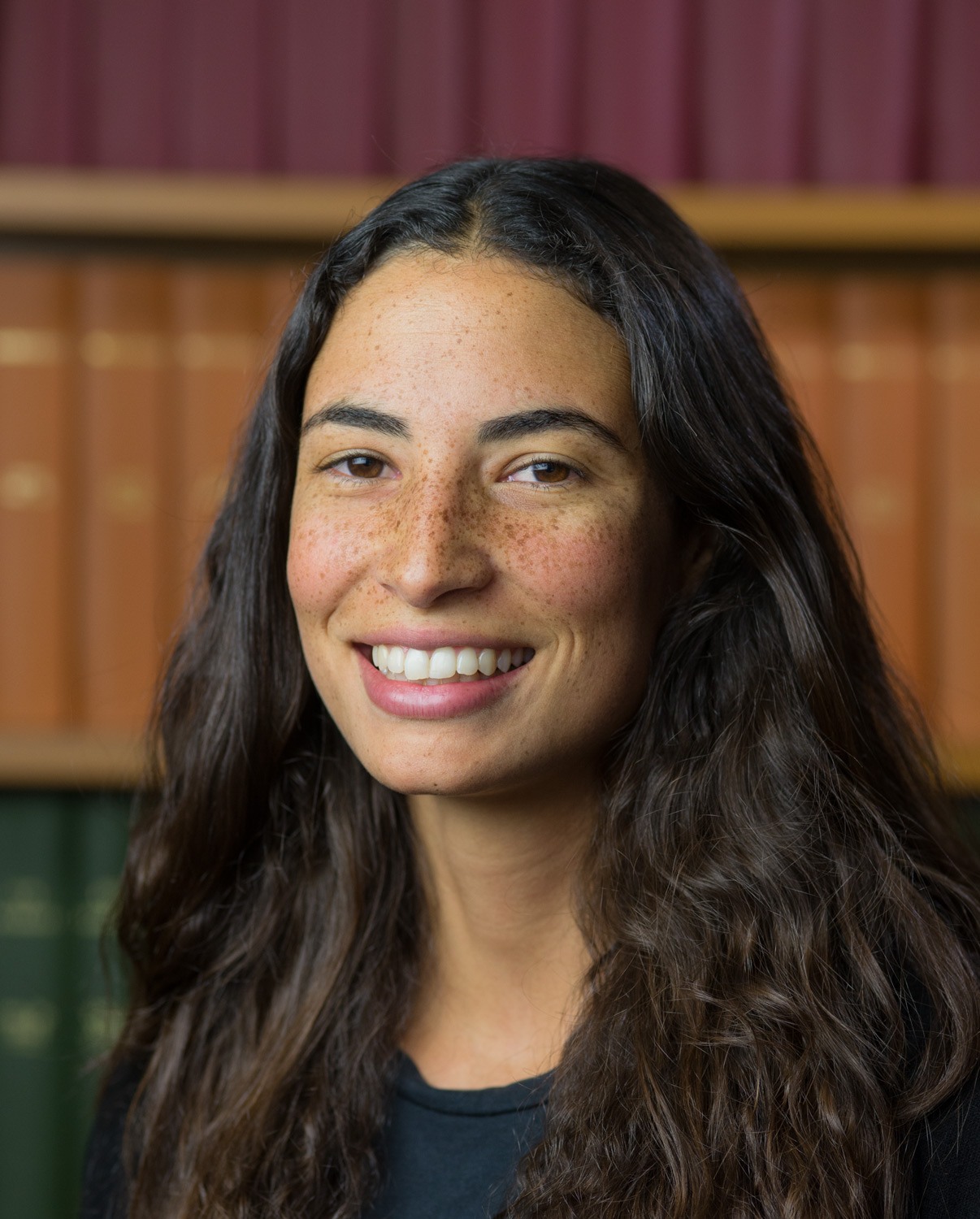
Our congratulations go to Unit D.Phil. student Carolina Reis for successfully defending her doctoral thesis, entitled “Probing and restoring disrupted thalamocortical interactions during Parkinson’s disease and Essential tremor”, in her viva voce examination on 18th October 2021.
Carolina’s viva examiners were Dr Rick Helmich (Radboud University, The Netherlands) and Professor Rafal Bogacz (University of Oxford). The viva took place remotely via digital conferencing.
Carolina was supervised by Associate Professor Hayriye Cagnan, Associate Professor Andrew Sharott and Professor Peter Brown.
